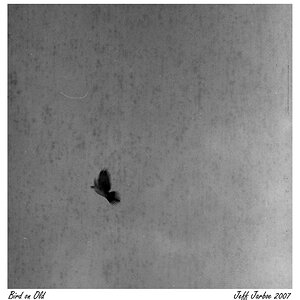MMeticulous
TPF Noob!
- Joined
- Aug 26, 2009
- Messages
- 29
- Reaction score
- 0
- Location
- Nashville, TN
- Can others edit my Photos
- Photos NOT OK to edit
Hello Everyone.
I'm mad! Mad at myself, mad at Duracell, mad that I don't know what caused the problem or how to prevent it in the future, except to always remove my batteries from all stored electronics, which is a major pain in some instances.
One of the AA Duracell copper top alkaline batteries inside my Canon Speedlite 580EX leaked and discharged a white powder corrosion on the internal battery contacts of my flash. The batteries have an expiration date on them of 2014, so it certainly shouldn't be from age.
I had not used my flash in approximately 9 months, but it was stored inside my camera case in my climate controlled living area, never subjected to extreme temperatures of any kind. I wish I knew what caused this so I could prevent it in the future. I just went on a mad rant to remove batteries from every electronic device I don't use regularly, but I have several tools (for electronics) which require a screwdriver to remove the batteries, and this is a major inconvenience!
To add insult to injury, about a year ago I had the exact same thing happen to a Nikon SB-26 Speedlight Flash, however in that case I'm not sure who the battery manufacturer was (I'm sure it was a name brand disposable alkaline, but I don't remember whether it was Duracell or Energizer) and in that instance the flash was stored in my basement, which is humidity controlled, but not temperature controlled. In my experience, flashes seem to be especially susceptible to this type of damage.
In the case of the Nikon, the corrosion was so extensive, that I've written that flash off as lost. In the case of the 580EX, I'm hoping I can clean it up, but this really upsets me since this is a near new flash with hardly any hours on it.
I've read many of your tips for cleaning with vinegar, etc... Does anyone know specifically WHY this happens, or how I can prevent it without removing all my batteries, or under what circumstances it is most likely to become a problem? Please don't answer if you don't really know. I have enough random thoughts, I need some FACTS.
Thanks for the feedback!
 Jeff
Jeff
I'm mad! Mad at myself, mad at Duracell, mad that I don't know what caused the problem or how to prevent it in the future, except to always remove my batteries from all stored electronics, which is a major pain in some instances.
One of the AA Duracell copper top alkaline batteries inside my Canon Speedlite 580EX leaked and discharged a white powder corrosion on the internal battery contacts of my flash. The batteries have an expiration date on them of 2014, so it certainly shouldn't be from age.
I had not used my flash in approximately 9 months, but it was stored inside my camera case in my climate controlled living area, never subjected to extreme temperatures of any kind. I wish I knew what caused this so I could prevent it in the future. I just went on a mad rant to remove batteries from every electronic device I don't use regularly, but I have several tools (for electronics) which require a screwdriver to remove the batteries, and this is a major inconvenience!
To add insult to injury, about a year ago I had the exact same thing happen to a Nikon SB-26 Speedlight Flash, however in that case I'm not sure who the battery manufacturer was (I'm sure it was a name brand disposable alkaline, but I don't remember whether it was Duracell or Energizer) and in that instance the flash was stored in my basement, which is humidity controlled, but not temperature controlled. In my experience, flashes seem to be especially susceptible to this type of damage.
In the case of the Nikon, the corrosion was so extensive, that I've written that flash off as lost. In the case of the 580EX, I'm hoping I can clean it up, but this really upsets me since this is a near new flash with hardly any hours on it.
I've read many of your tips for cleaning with vinegar, etc... Does anyone know specifically WHY this happens, or how I can prevent it without removing all my batteries, or under what circumstances it is most likely to become a problem? Please don't answer if you don't really know. I have enough random thoughts, I need some FACTS.
Thanks for the feedback!


![[No title]](/data/xfmg/thumbnail/37/37104-99933b18ee16678a8299f12747336d48.jpg?1619737882)
![[No title]](/data/xfmg/thumbnail/38/38263-ad5e4c9e677626ddb5b1e7cdf9ebe40e.jpg?1619738548)








![[No title]](/data/xfmg/thumbnail/42/42015-c5cdef195e2aab7b272f0c03437c42c4.jpg?1619739978)
